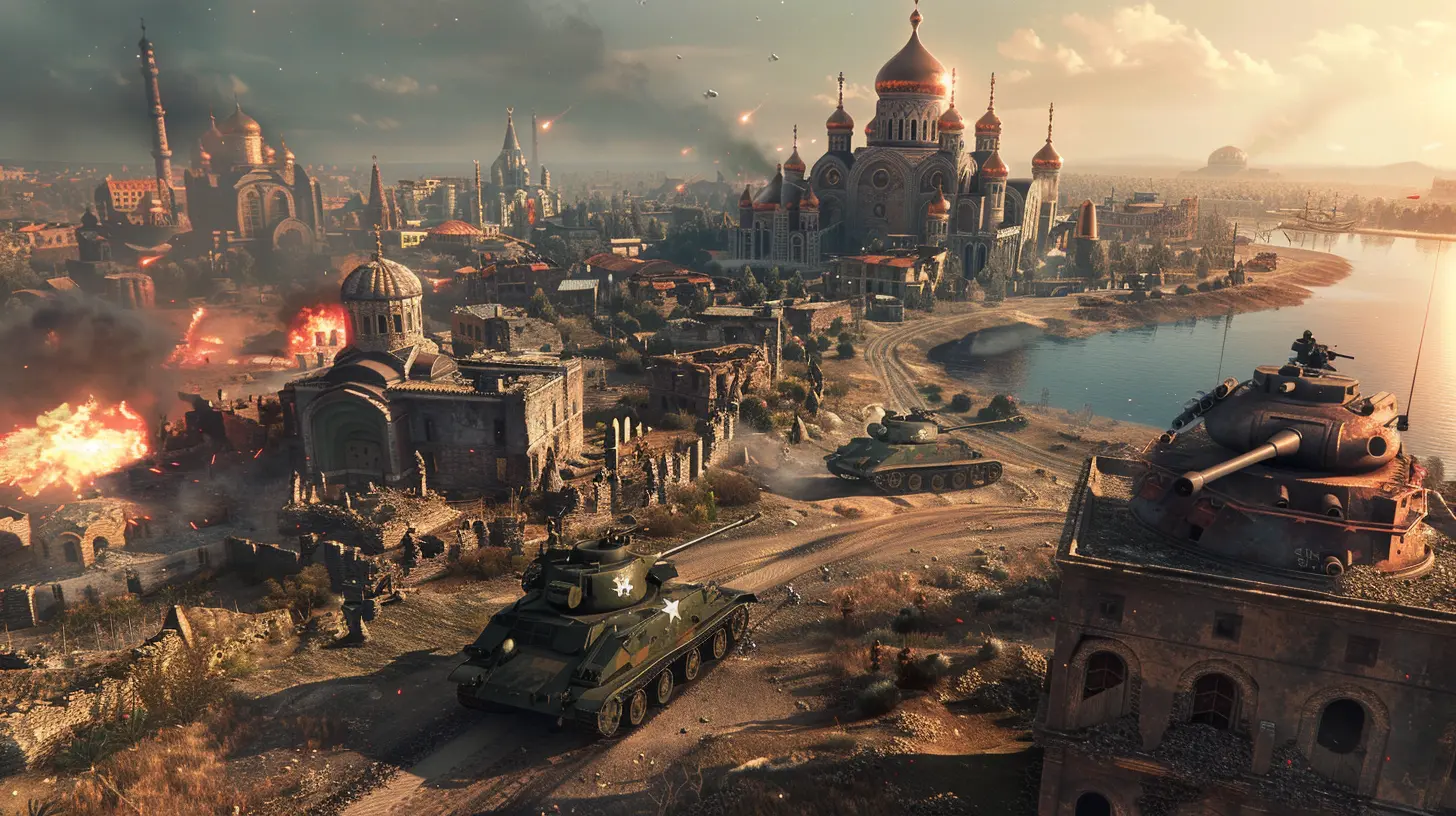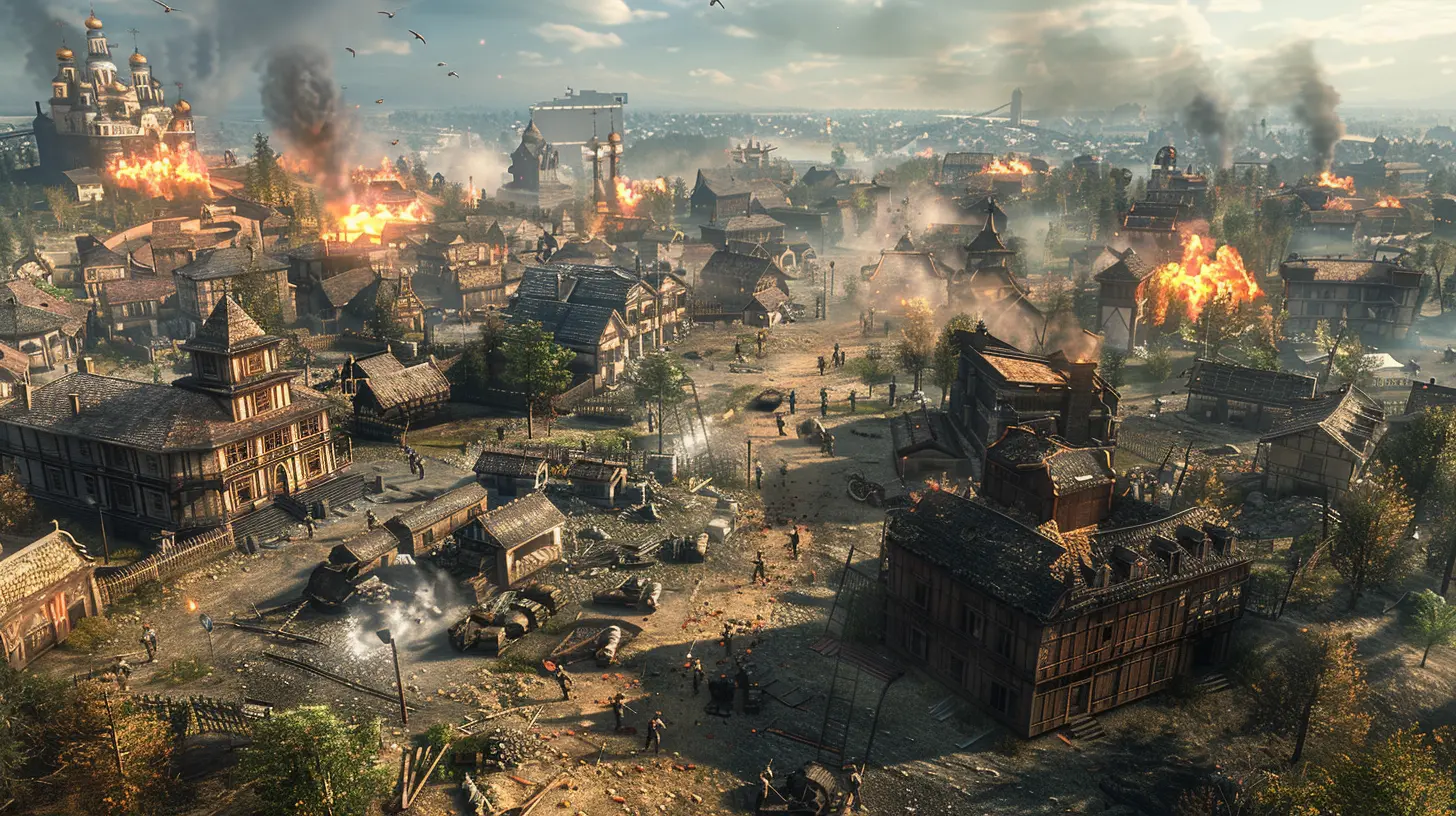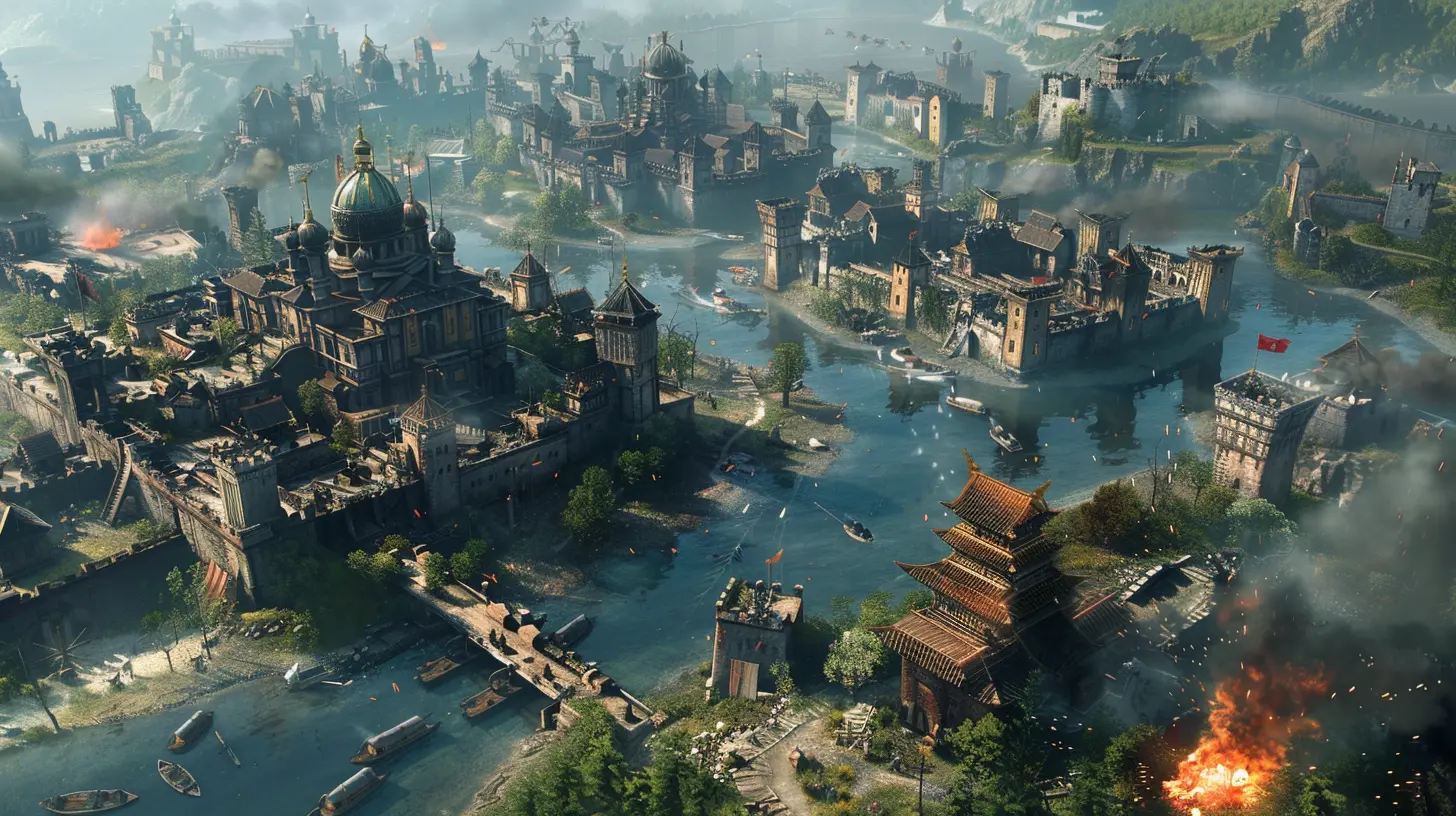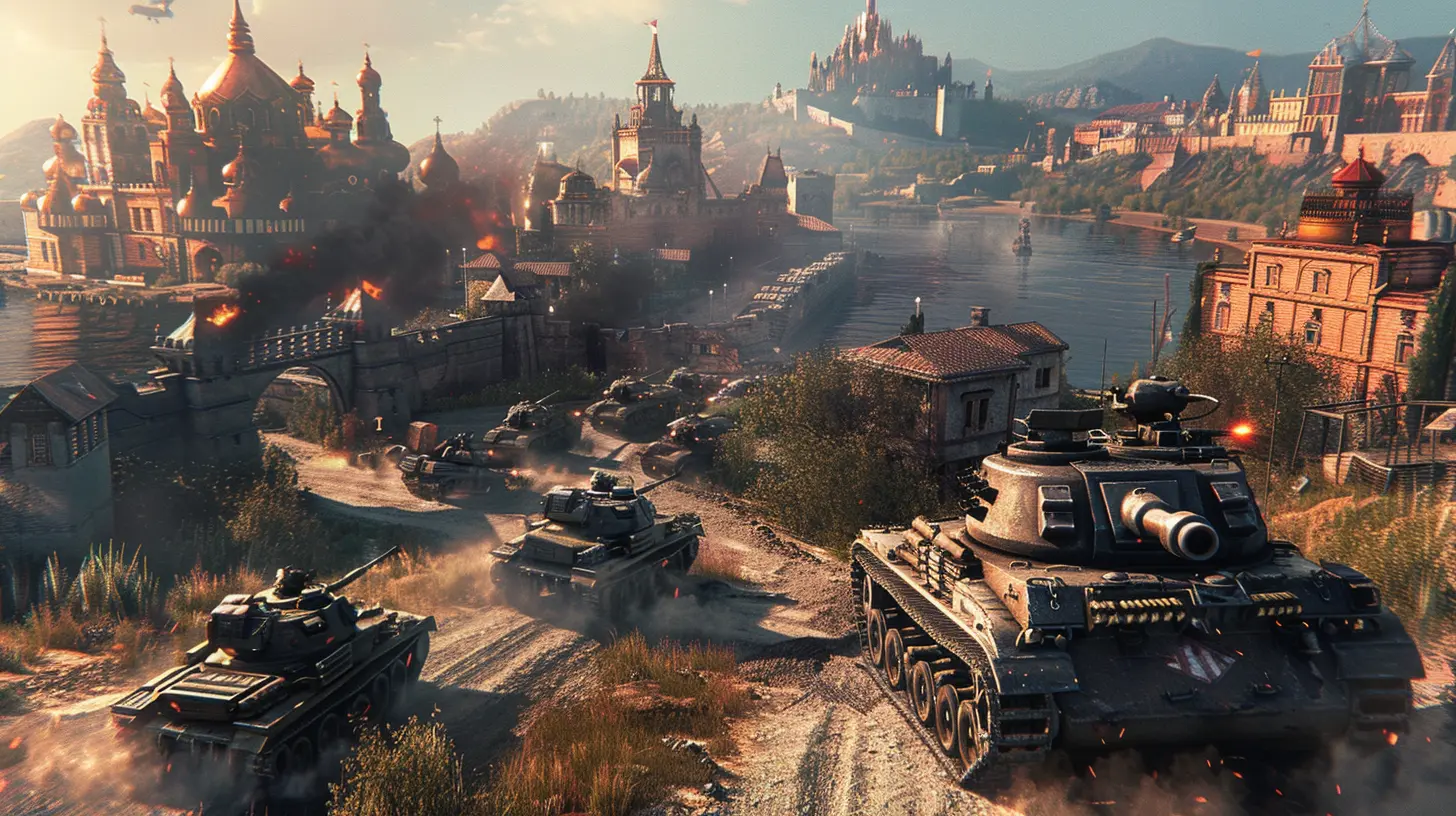The Top War Games with Detailed Resource Management Systems
7 November 2025
War games have come a long way from the button-mashing chaos of early arcade shooters. Today, it’s not just about having the biggest army or the flashiest tanks—it’s also about what’s behind the scenes. We're talking logistics, strategy, production chains, and the delicate balancing act of managing resources while dodging missiles.
If you're the type of gamer who thrives on strategy and micromanagement as much as combat, then games with detailed resource management systems are your battlefield. Let’s dive into the top war games where your skills as a commander don’t just come from your trigger finger, but also your brainpower and ability to juggle multiple systems like an elite-level multitasker.
Why Resource Management Is a Game-Changer in War Games
Think of resource management as the unsung hero in war games. Sure, blowing stuff up is cool—but being the mastermind who keeps the supply lines running while your opponent runs out of ammo? That’s next-level.In the best war games, managing resources isn’t just a side activity—it’s central to your success. Whether it’s gathering food for your troops, refining oil to build vehicles, or allocating manpower to different fronts, these systems add depth, realism, and an incredible layer of strategy. In short: you’re not just a warrior—you’re an economist, a logistician, and a strategist all rolled into one.
Let’s get into the heavy hitters—the games that deliver not just on action but also on rich, satisfying resource mechanics.
1. Hearts of Iron IV (Paradox Interactive)
Paradox Interactive is basically the godfather of deep strategy games, and Hearts of Iron IV might just be their crown jewel when it comes to wartime resource management.What Makes It Unique?
In HOI4, you’re not just commanding an army—you’re running an entire country during WWII. You handle everything from political decisions and research trees to industrial capacity and trade negotiations. Your factories don’t magically churn out tanks—you need to secure steel, oil, rubber, and manpower to produce war machines.Want to build an air force? Better make sure you’ve got enough aluminum. Planning on blitzing through Europe? Fuel is your lifeline, and you’ll need to protect your supply convoys from naval attacks.
It’s a thinking person’s war game, and one where a single economic oversight can snowball into total defeat.
2. Total War: Three Kingdoms (Creative Assembly)
The Total War series has always been about balance—epic battles on one screen, deep empire management on another. But Three Kingdoms stands out when it comes to resource complexity and its impact on the battlefield.Why It’s a Resource Beast
In Three Kingdoms, you’re not just collecting gold—you’re dealing with intricate layers of food production, population management, infrastructure, and diplomacy. Running out of food? Your cities turn rebellious, your armies starve, and your plans crumble like a week-old fortune cookie.You also have to balance your economy with diplomacy—trading resources, forming alliances, and reading the room before making big power grabs. It’s a game of war but also one of nuance, economics, and social intrigue.
3. Supreme Commander (Gas Powered Games)
This one’s a bit older, but it’s a classic that still holds up incredibly well. Supreme Commander tosses you into large-scale futuristic battles with a killer twist—resource management is in real-time and deeply critical.What’s So Special?
You don’t just build units with a click and forget it. You manage two main resources: Mass and Energy. These power everything from building units to activating high-tech weaponry. But the kicker? These resources aren’t stockpiled—they’re generated continuously.So, you’re constantly balancing income versus expenditure in real-time. Build too much too fast, and your entire economy crashes. It’s like trying to sprint while juggling flaming torches—thrilling, stressful, and ridiculously fun.
This makes Supreme Commander not just a war game—it’s a lesson in efficiency, timing, and economic foresight.
4. Company of Heroes 2 (Relic Entertainment)
Fast-paced and gritty, Company of Heroes 2 is all about tactical combat—but underneath the explosions lies a surprisingly tight resource system.Resource Management On The Front Lines
Unlike sprawling global strategy games, CoH2 keeps the battlefield tight and tactical. You collect resources by controlling strategic points on the map. These include munitions, fuel, and manpower—each used for specific unit types and upgrades.What makes it unique is how resource control is directly tied to battlefield positioning. Lose a key area? Your tank production grinds to a halt. This creates a constant tug-of-war and forces you to fight smarter, not just harder.
5. Wargame: Red Dragon (Eugen Systems)
If modern warfare is more your thing, Wargame: Red Dragon throws you into realistic Cold War-era conflicts with a side of heavy-duty logistics.Realism Meets Resource Micromanagement
Unlike other RTS games, you don’t mine gold or chop wood here. Instead, you manage deployment points, supply lines, and unit resupply logistics. Ammunition, fuel, and repairs aren’t infinite. Units need constant resupplying via supply trucks or helicopters.Every battle in Wargame: Red Dragon feels like threading a needle—if your supply lines get cut off, your fancy tanks become sitting ducks. And because the game is so realistic, every decision feels weighty and impactful.
6. Factorio (Wube Software)
Okay, Factorio isn't technically a war game in the traditional sense—but hear me out. It’s got enemies, it’s got defense, and most importantly—it’s all about managing incredibly complex resource production chains.Building the Machine of War
In Factorio, you start with some basic tools and build an automated industrial empire from scratch. You mine resources, refine them, automate production lines, and set up logistics to produce everything from ammunition to turrets.Eventually, you’ll have to defend your growing factory from waves of alien biters. Managing resources isn’t just about survival—it’s about scaling efficiently, fixing bottlenecks, and building a self-sufficient war machine. Pure dopamine for anyone who loves supply chain logistics.
7. Anno 1800 (Ubisoft Blue Byte)
Think of Anno 1800 as the Victorian cousin of resource-heavy war games. While it leans more into the city-building side of things, it doesn’t slack on complex resource management and wartime strategy.Supply Chains Galore
You build a sprawling empire filled with intricate production chains—like creating canned goods that require fish, iron, coal, and tin production across multiple islands. Add in naval warfare, trade routes, and political maneuvering, and you’ve got a full-blown logistical symphony.And yes, war does come—especially when you start competing for territory, colonies, and influence. Make a wrong move in your economy, and you’ll find yourself out-gunned and out-funded.
8. RimWorld (Ludeon Studios)
Let’s get a little sci-fi with this one. RimWorld might look like a top-down indie survival sim at first glance, but it's a masterclass in micromanagement—especially when it comes to prepping for war.MacGyver Meets Military
You're stranded on an alien planet with a handful of survivors, and every choice matters. You’ll mine for metal, grow crops, craft weapons, and treat wounds. But it’s not just about gathering resources—it’s about where and how you use them.When raiders come knocking, all your prep is tested. Did you build automated turrets? Do you have enough food stockpiled to wait out a siege? If you planned well, you’ll survive. If you didn’t—it’s game over.
What All These Games Have in Common
If one thing ties all these games together, it’s this: resource management turns war into chess. Sure, reflexes help. But if you don’t think ahead, manage your economy, and position your forces wisely, the game will eat you alive.On top of that, these games are infinitely replayable. Every session asks new questions. Should you expand your economy or reinforce your army? Invest in defenses or go all-in with offense? There’s no one-size-fits-all answer—and that’s what makes them so addictive.
Final Thoughts: Are These Games Worth Your Time?
Absolutely. If you love war games but crave something deeper than just blasting your enemies into oblivion, these titles are perfect. They reward patience, planning, and tactical creativity.Whether you want to run a country, build an economy from the ground up, or balance your budget while marching to war—these games deliver brainy, satisfying gameplay that sticks with you long after the screen goes dark.
So, pick your battlefield. Stock up on resources. And get ready to wage war—the smart way.
all images in this post were generated using AI tools
Category:
War GamesAuthor:

Leif Coleman
Discussion
rate this article
2 comments
Rosalie Wheeler
Ready to conquer? These war games prove that strategy and resource management can be a blast! Get your game face on and enjoy!
November 13, 2025 at 6:12 AM

Leif Coleman
Absolutely! The blend of strategy and resource management in these war games offers an engaging challenge. Get ready to strategize and have fun!
Kian McMaster
Wow, what an exciting roundup! 🎮 Resource management adds such depth to war games, making every decision thrilling. Can't wait to dive into these titles and strategize my way to victory! Thanks for sharing these gems with us! 🌟
November 8, 2025 at 3:28 AM

Leif Coleman
Thank you! I'm glad you found the roundup exciting. Enjoy strategizing and good luck on your gaming journey! 🎮✨


